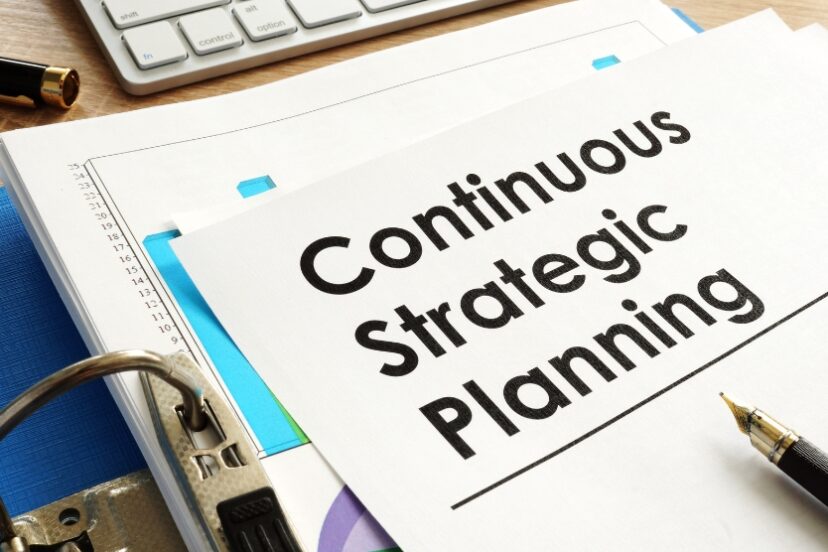Artificial Intelligence (AI) is no longer a futuristic idea—it’s here, shaping industries and changing how businesses…
15 Critical Business Building Fundamentals That Apply Online And Offline

Running a business, whether online or offline, is a complex balancing act that demands strategic thinking, adaptability, and a deep understanding of foundational principles.
Business owners often face countless challenges, from navigating market trends to maintaining consistent customer engagement and balancing operational efficiency.
However, at the core of every successful venture lies a set of unchanging fundamentals—guidelines that transcend industries, eras, and business models.
These principles are the building blocks of profitability, growth, and long-term survival, whether you’re managing an e-commerce website, a physical storefront, or a hybrid operation.
This article dives deep into 15 critical business-building fundamentals that apply across the board, empowering you to create a thriving business in today’s competitive landscape.
The insights here will help align your goals, refine your strategies, and ensure you’re focusing on what truly matters for sustainable success.
1)) Clear Vision
A clear vision serves as the foundation for any successful business, providing direction and purpose that guide every decision and action.
By articulating a strong vision, leaders establish a unified sense of purpose, inspiring teams to work together toward shared goals.
This clarity helps prioritize initiatives, ensuring resources are allocated to what truly matters the most.
A compelling vision also fosters resilience, keeping focus steady even when challenges arise.
It provides both a motivating force for growth and a framework to measure progress, enabling a business to remain aligned with its core values and long-term aspirations.
2)) Strategic Planning
Strategic planning is the backbone of any successful organization, providing a structured approach to set priorities, allocate resources, and ensure that every team member is aligned with overall goals.
By assessing both internal strengths and external opportunities, businesses can create actionable roadmaps that guide decision-making across all levels.
It requires a deep understanding of the industry landscape, competitor positioning, and the unique value the organization brings to its customers.
This process not only drives long-term growth but also empowers teams to respond effectively to shifts in market trends or unforeseen challenges.
Establishing clear objectives and measurable milestones enables progress to be tracked and adjustments to be made as necessary, ensuring that the organization remains on a solid path toward success.
3)) Strong Branding
A powerful brand creates a lasting impression and establishes a meaningful connection with its audience.
Strong branding communicates the core values and vision of an organization, fostering trust and loyalty among customers.
Through consistent messaging, visual identity, and a clear voice, a brand becomes recognizable and memorable in a competitive market.
It conveys authenticity and credibility, helping businesses stand out while building emotional resonance with their target audience.
The process of developing a robust brand requires careful attention to the needs and expectations of customers, ensuring that the brand aligns with their aspirations and preferences.
By doing so, the organization not only strengthens its presence but also builds a community of advocates who contribute to its ongoing success.
4)) Target Audience Focus
Understanding and addressing the specific needs of a target audience is essential for creating meaningful connections and fostering loyalty.
By gaining insights into their behaviors, preferences, and challenges, organizations can craft tailored strategies that resonate deeply.
Investing in research, such as surveys, interviews, and market analysis, allows businesses to paint a clear picture of their audience, enabling them to offer products or services that provide real value.
Maintaining a consistent and engaging tone that reflects the audience’s values helps build trust and reliability, ensuring that brand messaging feels relevant and authentic.
This focus not only drives engagement but also strengthens long-term relationships, paving the way for sustainable growth.
5)) Quality Offerings
Delivering high-quality offerings is essential for standing out in a competitive market. Excellence in products or services not only meets but also exceeds customer expectations, fostering loyalty and satisfaction.
Attention to detail, thoughtful design, and a commitment to using the best available resources ensure that every offering reflects the standards of the brand.
Consumers value consistency and reliability, which are achieved through rigorous testing, feedback integration, and continuous improvement.
By setting a high benchmark, businesses not only build a strong reputation but also create lasting impressions that encourage positive word-of-mouth and repeat patronage.
This dedication reinforces trust and establishes a solid foundation for enduring success.
6)) Effective Marketing
Effective marketing requires a clear understanding of the target audience and the ability to resonate with their needs and desires.
Crafting compelling messages, combined with a well-researched strategy, ensures that communication reaches the right individuals in the most impactful way.
Engaging storytelling, vivid visuals, and a strong brand identity help establish an emotional connection, making the message memorable and persuasive.
Leveraging data-driven insights enhances the ability to tailor efforts, enabling businesses to deliver personalized experiences that drive results.
Building a consistent presence across multiple channels fosters trust, encourages engagement, and strengthens relationships with customers, creating a pathway for sustained growth and influence in the market.
7)) Customer Relationships
Building strong connections with customers is at the heart of any successful business. Establishing trust and understanding begins with active listening and engaging in meaningful interactions that address their needs and preferences.
Consistent communication, transparency, and genuine care help foster loyalty and encourage long-term partnerships.
By creating a customer-centric approach, businesses can provide value beyond just products or services, positioning themselves as trusted advisors and dependable brands.
Investing in these relationships not only drives repeat business but also inspires advocacy, as satisfied customers are likely to share their positive experiences and attract new clientele.
This relational approach nurtures a sense of community and turns customers into passionate supporters, cementing the foundation for continued success.
8)) Financial Management
Effective financial management is crucial for sustaining and growing any business. It involves planning, controlling, and monitoring financial resources to ensure stability and profitability.
Sound strategies include creating detailed budgets, analyzing cash flow, and allocating resources efficiently to maintain a healthy balance between income and expenses.
Regularly reviewing financial performance allows for identifying trends, addressing discrepancies, and making informed decisions to secure long-term growth.
By prioritizing accountability and fostering transparency, businesses can build trust with stakeholders and ensure compliance with regulatory requirements.
Strong financial management serves as a backbone for operational efficiency, empowering organizations to seize opportunities while mitigating potential risks.
9)) Continuous Learning
Continuous learning plays a pivotal role in fostering innovation and adaptability within organizations.
By encouraging an environment where knowledge sharing and skill enhancement are celebrated, businesses can stay ahead in a constantly evolving landscape.
Offering opportunities for employees to expand their expertise not only enriches their professional growth but also enhances organizational resilience.
This culture of learning supports creativity, critical thinking, and problem-solving, all of which are essential for tackling new challenges and seizing emerging opportunities.
When individuals and teams remain curious and committed to expanding their horizons, they contribute to a more dynamic and forward-thinking workplace.
10)) Adaptability
Adaptability is a crucial skill in today’s fast-paced and ever-changing environments. It reflects the ability to respond effectively to unexpected challenges, shifting priorities, and evolving circumstances.
Those who excel in adaptability showcase resilience, creative thinking, and a willingness to approach problems with an open mind.
This quality empowers individuals and teams to learn from new experiences, adjust their strategies when needed, and thrive under pressure.
By being receptive to change and proactive in their approach, adaptable individuals contribute to stronger collaboration and foster a sense of stability, even in uncertain times.
11)) Networking
Building a strong network is a vital aspect of personal and professional growth, offering opportunities to share knowledge, gain advice, and create meaningful connections.
Networking provides a platform to meet like-minded individuals, industry experts, and potential collaborators, fostering a sense of community and mutual support.
It encourages the exchange of ideas, enhances visibility in your field, and can lead to opportunities that may not have been accessible otherwise.
Engaging with diverse groups, whether through industry events, social gatherings, or online platforms, helps expand your perspective and introduces new possibilities.
Maintaining these connections requires genuine interest, consistent communication, and a willingness to support others, creating lasting relationships that benefit all parties involved.
12)) Leadership Skills
A strong foundation in leadership skills is vital for guiding teams toward success and fostering a positive and productive environment.
Effective leadership requires a combination of clear communication, emotional intelligence, decision-making capabilities, and the ability to inspire and motivate others.
By leading with integrity and demonstrating accountability, leaders can earn the trust and respect of their team members, which encourages collaboration and drives performance.
It is also essential for leaders to remain adaptable, as challenges and opportunities may arise that require innovative thinking and a flexible approach.
Through continuous self-reflection and a commitment to growth, leaders can refine their abilities and create an atmosphere where everyone feels empowered to contribute their best.
13)) Time Management
Effective time management is the foundation of productivity and success. By carefully planning tasks and prioritizing responsibilities, individuals can ensure that their energy and focus are directed toward meaningful accomplishments.
Proactive scheduling allows for a balanced approach to work, personal development, and rest, reducing stress and fostering a sense of control.
Delegation can also play a key role, ensuring that work is distributed appropriately among team members while building trust and cooperation within the group.
Being mindful of time helps mitigate procrastination and encourages accountability, allowing for steady progress toward both short-term and long-term goals.
Creating clear boundaries and minimizing distractions further ensures that each moment is utilized to its fullest potential, leading to an overall sense of achievement and fulfillment.
14)) Data-Driven Decisions
Data-driven decisions empower individuals and organizations to make more precise and impactful choices by leveraging analytics, statistics, and factual evidence.
By relying on well-curated datasets and comprehensive insights, decision-making processes shift from intuition or guesswork to being firmly rooted in quantitative and qualitative findings.
This approach not only reduces risks but also enhances efficiency, as resources can be allocated strategically toward areas backed by solid data.
Organizations that prioritize this method often experience improved outcomes, as they can identify trends, predict future patterns, and uncover hidden opportunities.
By fostering a culture of analysis and evidence-based strategies, data-driven decisions pave the way for both sustained growth and innovation in various fields.
15)) Persistence
Persistence is the steadfast determination to push forward despite obstacles and setbacks, a quality that has been the backbone of countless success stories throughout history.
It requires an unwavering focus on long-term goals and maintaining effort even when immediate results are not apparent.
This relentless dedication often involves learning from failures, adapting to changing circumstances, and continuously seeking innovative solutions.
Persistence builds resilience, enabling individuals to weather challenges and emerge stronger.
It is a mindset that transforms aspirations into achievements through consistent effort and the refusal to give up, no matter how daunting the road ahead may seem.
Conclusion
For business owners, persistence is not just an admirable trait; it is a critical cornerstone of success.
Every entrepreneur faces hurdles—whether it’s navigating financial challenges, adapting to shifting markets, or managing setbacks that test their resolve.
However, those who embody persistence find ways to turn obstacles into opportunities, often discovering innovative solutions that set their businesses apart.
By fostering a mindset of resilience and relentless effort, business owners can create a culture that inspires their teams, drives consistent growth, and aligns with long-term goals.
Building a successful business is a marathon, not a sprint. Success is not defined by how few challenges you face but by your determination to keep moving forward, learn from failures, and adapt in the face of adversity.
The path may be daunting at times, but for those who persist, the rewards can be extraordinary.





